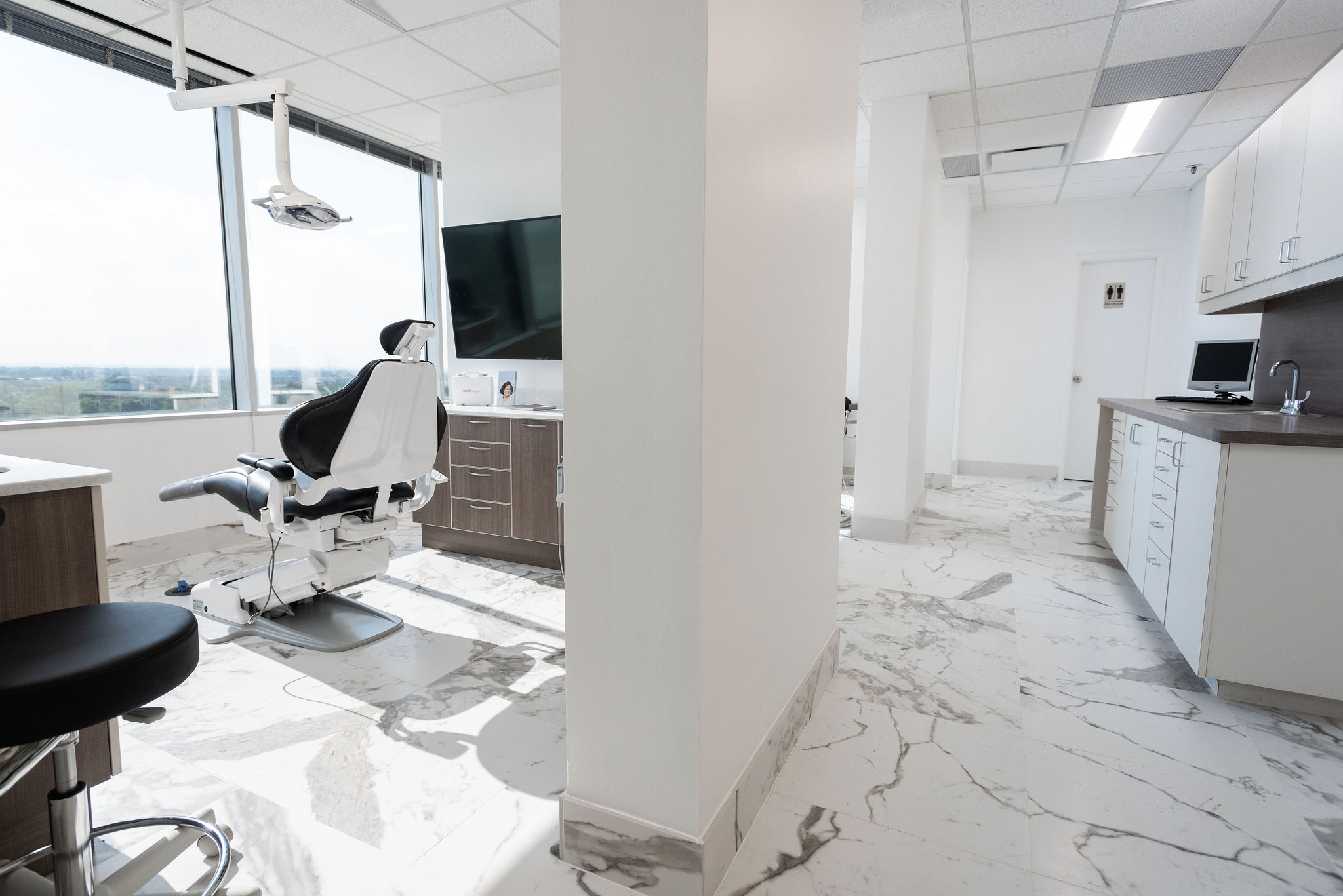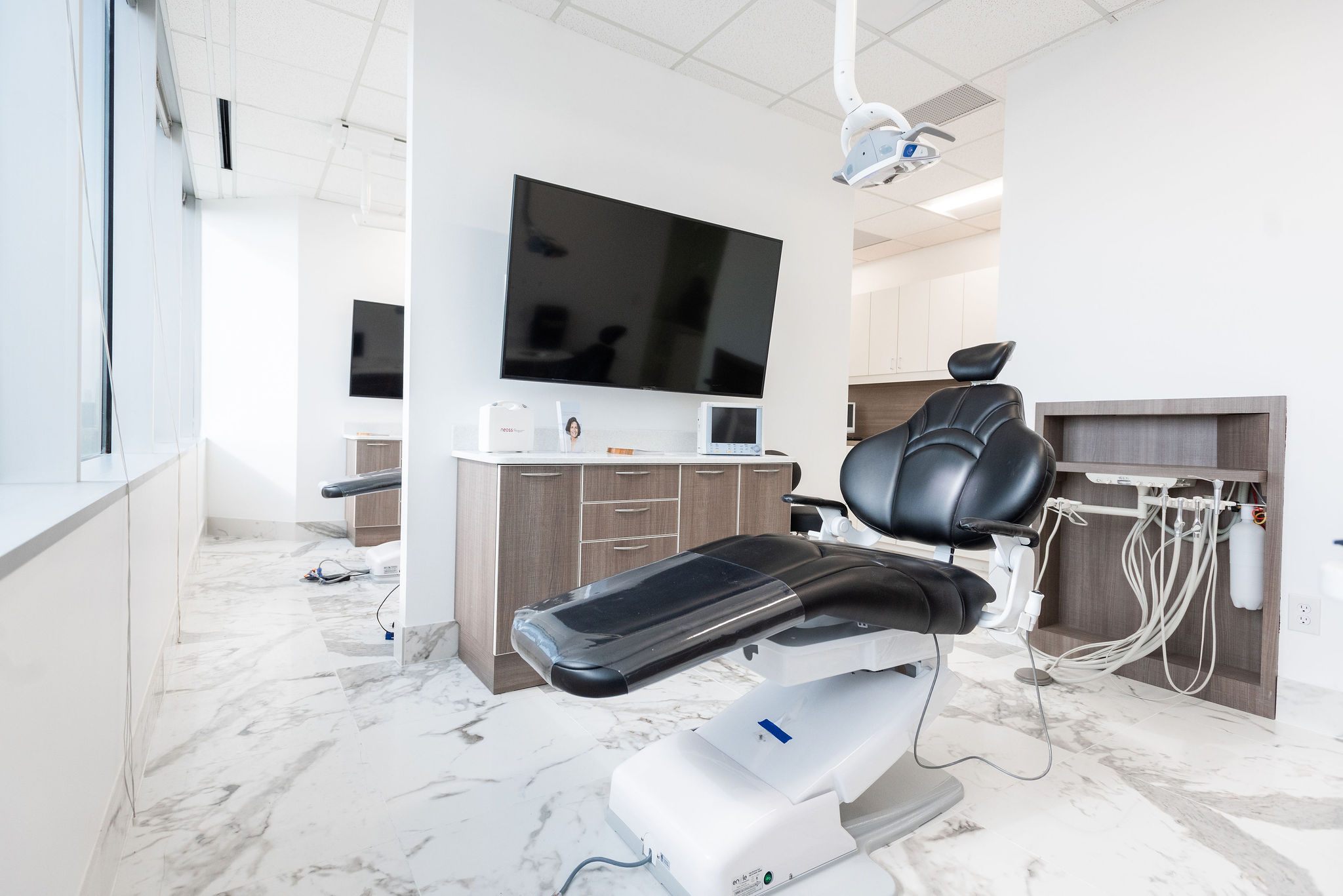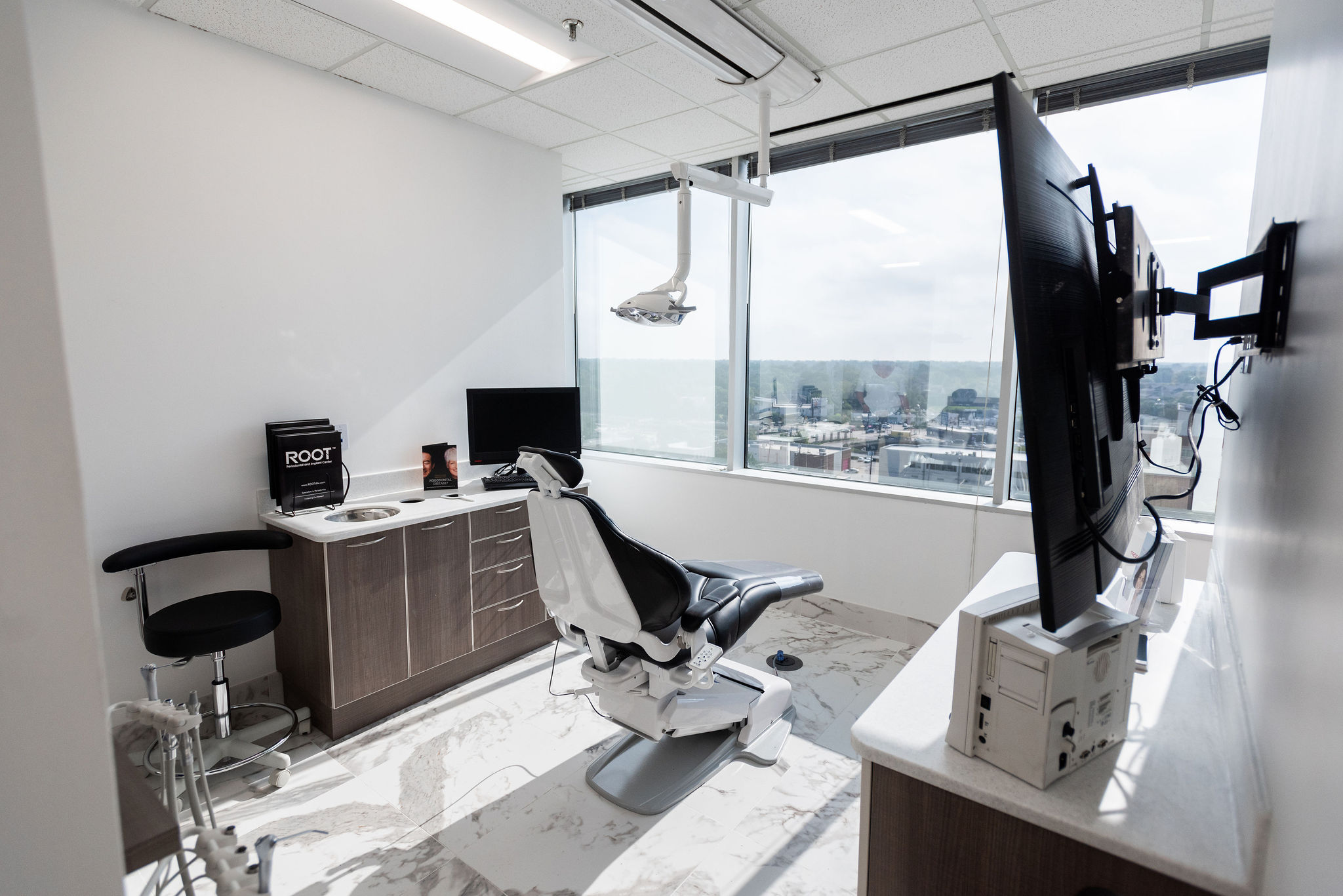SPECIALIZED ORAL PATHOLOGY IN DALLAS, TX
Making Specialized Oral Pathology Available to Everyone
Dry mouth, or xerostomia, refers to a condition where the salivary glands in your mouth do not make enough saliva to keep your mouth wet. Dry mouth can be a side effect of certain medications, age-related issues, a result of radiation or chemotherapy for cancer, as well as being associated with autoimmune conditions.
The professionally trained team at The Center for Oral Pathology, 4514 Cole Avenue, Suite 930, in Dallas, Texas, 75205, specializes in understanding the dynamics of the science and medicine to address oral health problems. If you have any questions concerning whether you might have dry mouth or xerostomia, contact us today at 855-ORAL-PAT(H) or 855-672-5728. We are committed and dedicated to ensuring your oral health.
Saliva helps you prevent tooth decay by neutralizing the acids produced by bacteria, limiting the bacterial growth, and continuously washing away food particles. Saliva also enhances your ability to taste and makes it easier to both chew and swallow. Enzymes in your saliva also aid in digestion.
Dry mouth and xerostomia can range from being a nuisance to something having a major impact on your overall health, as well as your appetite and the enjoyment of tasting food.
Common Causes of Dry Mouth or Xerostomia
Dry mouth is caused when your salivary glands do not produce enough saliva to keep your mouth wet. These glands may not work properly as the result of:
- Medications- Many medications, including over-the-counter drugs, will produce dry mouth as a side effect. Among the more likely types to cause dry mouth are drugs used to treat depression, high blood pressure and anxiety, some muscle relaxants, antihistamines, decongestants, and pain relievers.
- Aging- You can experience dry mouth as you age. Contributing factors are your body’s ability to process medication, inadequate nutrition, and chronic health conditions.
- Cancer therapy- Chemotherapy drugs can change the consistency of your saliva and the amount produced. Normal salivary flow should return after the treatment is completed. Radiation treatments to your head and neck permanently damage salivary glands, resulting in a decrease in saliva production.
- Nerve damage- An injury or surgery that causes nerve damage to your head and neck area can cause dry mouth.
- Other health conditions- Dry mouth can also occur in association with numerous health conditions including diabetes, , Alzheimer's disease, or from autoimmune diseases. Snoring or breathing with your mouth open will also cause dry mouth.
- Tobacco and alcohol use- Drinking alcohol and smoking or chewing tobacco will also increase dry mouth.
- Recreational drug use- Methamphetamine use can cause dry mouth and damage your teeth. Marijuana can also cause dry mouth.
If you do not have enough saliva and develop dry mouth, it can lead to:
- An increase in plaque, tooth decay, and gum disease.
- Uncomfortable mouth sores.
- A yeast infection in your mouth.
- Sores or splits at the corners of your mouth or cracked lips.
- Poor nutrition because of problems with chewing and swallowing.
Treatment for Dry Mouth or Xerostomia
The goals of The Center for Oral Pathology for treating your xerostomia include identifying the possible cause, relieving your discomfort, and preventing complications.
Xerostomia can be alleviated by using a saliva substitute and other measures, such as lifestyle changes, and other oral health specific recommendations.
The best way to treat your dry mouth will depend on the cause. You can do some things to relieve dry mouth temporarily. But for a permanent solution it is best to have The Center for Oral Pathology diagnose the cause.
To relieve your dry mouth, you can try:
- Sip water regularly.
- Chew sugar-free gum or suck on sugar-free hard candies to stimulate the flow of saliva.
- Limit your caffeine intake.
- Do not use mouthwashes that contain alcohol.
- Stop all tobacco use.
- Try over-the-counter saliva substitutes.
- Try a mouthwash designed for dry mouth.
- Avoid using over-the-counter antihistamines and decongestants because they can contribute to your symptoms.
- Breathe through your nose, not your mouth.
- Use a room humidifier at night to add moisture to the air.
Saliva is essential to maintain the health of your teeth and your mouth. If you frequently have a dry mouth, try taking these steps to help your condition:
- Avoid sugary or acidic foods and drinks because they will increase your risk of tooth decay.
- Asking your family dentist if you would benefit from prescription fluoride toothpaste.
- Use a fluoride rinse or a brush-on fluoride gel before bedtime. Sometimes a custom-fit fluoride applicator can make this more effective.
- See your family dentist at least twice yearly to detect and treat tooth decay or identify other dental problems.
Signs and Symptoms of Dry Mouth or Xerostomia
If you are not producing enough saliva, you might notice these symptoms:
- A dryness or a feeling of stickiness in your mouth.
- Your saliva seems thick and stringy.
- You have bad breath.
- A difficulty in chewing, speaking, and swallowing.
- A dry or sore throat and hoarseness.
- Your tongue is dry or feels rough.
- A changed sense of taste.
- Problems have developed wearing dentures.
Schedule Your Oral Pathology Exam Today
At The Center for Oral Pathology, 4514 Cole Avenue, Suite 930, in Dallas, Texas, 75205, our team of specialists take your oral health seriously. Scheduling an appointment for an oral pathology examination or an oral biopsy can also actively improve your overall health. In addition to embracing the importance of your overall oral health, we also understand the value of your time, which is why we are focused on making your visit to our clinic as efficient as possible.
If you would like to learn more about your viable options with regards to an exam for dry mouth or xerostomia, give us a call today at 855-ORAL-PAT(H) or 855-672-5728 with any questions and to get your examination on the calendar. We look forward to serving you and contributing to improving your quality of life.




